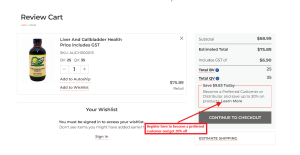🥦 Carbohydrates, Sugars, and Health: What Science Says About Blood Sugar, Diabetes, and Cancer Risk
The role of carbohydrates and sugar in chronic disease continues to be a widely discussed topic. However, recent studies reveal that not all carbs are created equal. The quality, source, and timing of carbohydrate intake can significantly influence blood glucose levels, insulin response, and even the risk of cancer and type 2 diabetes.
In this article, we explore scientific findings from multiple peer-reviewed studies that differentiate between refined sugars, whole-food carbohydrates, and fiber-rich fruits and vegetables — and how each plays a distinct role in metabolic health.
🔬 1. Not All Carbohydrates Are the Enemy
According to The Nutrition Source by Harvard School of Public Health, the glycemic effect of carbohydrates — how quickly they raise blood sugar — varies significantly depending on the food source. Whole-food carbohydrates like legumes, vegetables, and whole fruits are absorbed more slowly due to their fiber content, resulting in stable blood glucose and insulin levels.
Refined carbohydrates (white bread, pastries, soda), on the other hand, are digested quickly, spiking blood sugar and contributing to insulin resistance, weight gain, and increased risk of type 2 diabetes.
🥗 2. Fiber-Rich Diets Lower Diabetes Risk
A 2015 meta-analysis published in Nutrition, Metabolism & Cardiovascular Diseases (PMC4718092) found that higher intake of fruits, vegetables, and their natural fiber significantly reduces the risk of developing type 2 diabetes. The protective effect was most strongly associated with:
- Whole fruits such as berries, apples, and citrus
- Leafy greens and non-starchy vegetables
- Dietary fiber intake above 15g per day
Fiber works by slowing digestion, reducing glucose absorption, and improving insulin sensitivity — all of which are vital for blood sugar regulation.
💡 3. Timing and Sequence of Eating Matters
A fascinating study from 2023 (PMC10005673) investigated the order of food intake and found that eating vegetables first — regardless of eating speed — significantly reduced post-meal blood sugar and insulin levels in young healthy women. This simple strategy may help control postprandial glucose spikes, especially in people at risk for insulin resistance or metabolic syndrome.
🍇 4. Fruits Support Blood Sugar and Hypertension Control
Contrary to popular belief, whole fruits do not increase the risk of diabetes or hypertension. A 2021 review (PMC7884895) found that fruit intake is associated with better glycemic control and reduced blood pressure, likely due to the synergy of polyphenols, fiber, and low energy density in fruits.
🧬 5. Sugar and Cancer: What the Evidence Shows
Emerging research (PMC9775518) is examining the sugar–cancer connection. Cancer cells are known to rely heavily on glucose for energy, a phenomenon known as the Warburg effect. However, current clinical evidence does not support the idea that sugar directly causes cancer.
Instead, excessive sugar consumption contributes to obesity, insulin resistance, and chronic inflammation, which are well-established risk factors for cancer development. Diets high in refined sugars and low in fiber-rich plant foods can indirectly fuel cancer progression.
🩺 Lifestyle as Medicine Recommendations
To support blood sugar balance, reduce the risk of diabetes, and possibly lower cancer risk:
- Prioritize fiber-rich carbohydrates from vegetables, legumes, fruits, and whole grains
- Avoid refined sugars and processed carbs (soda, pastries, white rice, etc.)
- Eat vegetables first during meals to reduce blood glucose response
- Stay hydrated, exercise regularly, and manage stress to improve insulin function
- Do not fear fruits — eaten whole, they are beneficial for most people
✅ Summary
The body needs carbohydrates for energy — but the type and source matter deeply. A whole-food, plant-forward diet rich in fiber and low in refined sugars is one of the most powerful dietary strategies for preventing and managing type 2 diabetes, improving insulin response, and possibly reducing cancer risk.
The science is clear: When it comes to carbs, quality counts.
🔗 References:
- Higher intake of fruits, vegetables or their fiber reduces the risk of type 2 diabetes
- Fruit Intake to Prevent and Control Hypertension and Diabetes
- Eating Vegetables First Has a Significant Reducing Effect on Postprandial Blood Glucose
- Effects of dietary fiber and carbohydrate on glucose metabolism in diabetic patients
- Carbohydrates and Blood Sugar – Harvard
- Understanding the Link Between Sugar and Cancer



